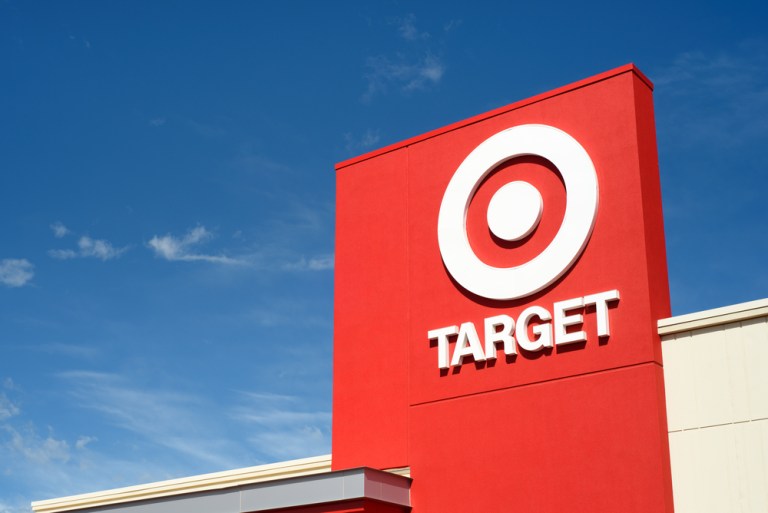Target Trains Its Bullseye On Millennials With ‘Smartly’ Brand

Target is rolling out a new discount brand, dubbed Smartly, intended to appeal to millennials. The line will include the kinds of household essentials that they might need in their apartments or starter homes, like dish soap and toilet paper. Smartly, which will encompass 70 products in all, will generally be priced at under $2. The idea, Target’s chief merchandising officer, Mark Tritton, told The Wall Street Journal is to show that customers “don’t have to go to Aldi or … Dollar General to find what [they’re] looking for.”
Target “doubled down on design and key attributes” of the products in the Smartly line. The retailer noted that, for instance, fragrances were “developed in partnership with master perfumers.” The packaging, too, is simple and clean. A bar of unscented soap, for example, includes messaging to indicate that it “smells like, well, nothing” and disposable plates carry the message “no dishes tonight.” The packages will also come in smaller sizes, such as single rolls of paper towels to accommodate consumers who might just be starting their careers and living in smaller spaces.
To market these items, Target is taking an omnichannel approach by offering them in-store and online for those who can’t make a Target run. And, while Target’s move made news this week, it’s not the first time that the retailer has rolled out private labels. In a statement, Tritton said that the retailer has introduced over 20 “owned and exclusive brands.” And, when it comes to Smartly, Tritton noted the brand “broadens [Target’s] assortment to give guests even more options to find the product that’s right for them, regardless of their budget.”
Convenience and price are important to millennials, but product is also important to this demographic. According to David Garfield, who heads up AlixPartners’ consumer products practice, millennials are seeking items that are positioned as environmentally friendly and healthy. And that is not an easy need for retailers to meet. Garfield told WSJ, “It’s been a challenge for store brands and private labels to offer value, but also enough of the other attributes.” That’s an ethos that Brandless, an eCommerce retailer that specializes in generic goods and also has millennial appeal, carries forward through its line of products.
The Business Model Of Generics
Brandless takes the approach of selling generic items at low prices — in its case, $3 — and applies it to the type of goods one might find in a high-end natural supermarket. Brandless doesn’t just selling a chocolate hazelnut spread — it sells an organic chocolate hazelnut spread. Its napkins aren’t just cheap, they are tree free — they save the forests by using bamboo grass and sugar cane instead. As a whole, Brandless’ goods are simple, non-GMO, organic, fair trade, kosher, gluten-free and/or no sugar added. They are also packaged to limit waste and labeled for maximum transparency.
This summer, Brandless expanded its selections with a clean body collection that is free of sulfates, dyes, parabens, formaldehyde, synthetic fragrances and nearly 400 other possibly harmful elements. Included is a full range of skincare items, such as face wash and scrub, moisturizing cream, body butter and lip balm. A spokesperson told Fast Company, “Brandless believes in better transparency and clarity around what we put in and on our bodies, and that higher standards shouldn’t mean higher price points.”
Brandless’ retail repertoire now includes food (canned goods, snacks, sauces, coffee), housewares (can openers, corkscrews, kitchen knives), cleaning supplies (dish soap, all-purpose cleaners, health and beauty products, toothpaste, hand soap) and office supplies. The magic is in limiting consumer choice. The only brand Brandless offers is the Brandless store brand, which means instead of 30 toothpaste choices, there is only one. And consumers aren’t the only ones buying — Softbank raised $240 million in a July Series C round for Brandless.
Will Target be able to build a large business out of Smartly as Brandless did with its products? That remains to be seen, but the hundreds of millions invested in Brandless may suggest that the business model of quality, value and trendiness might just be a winning formula.